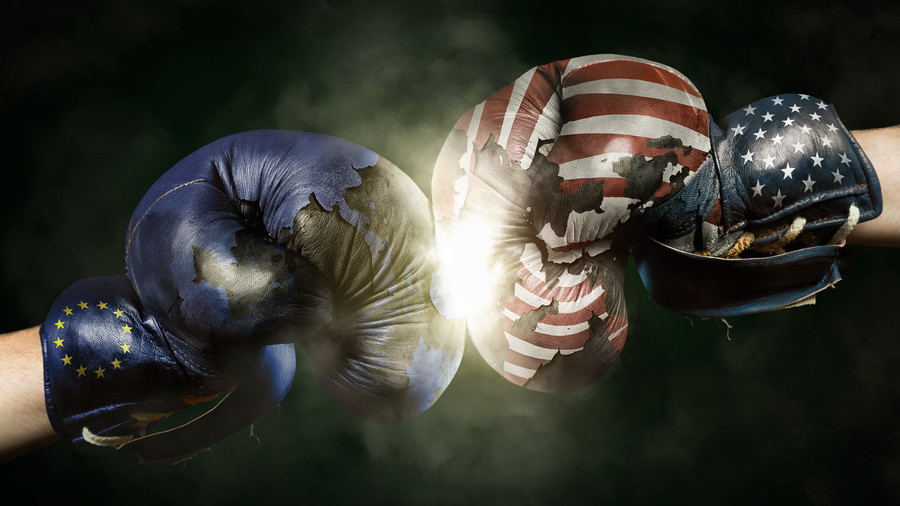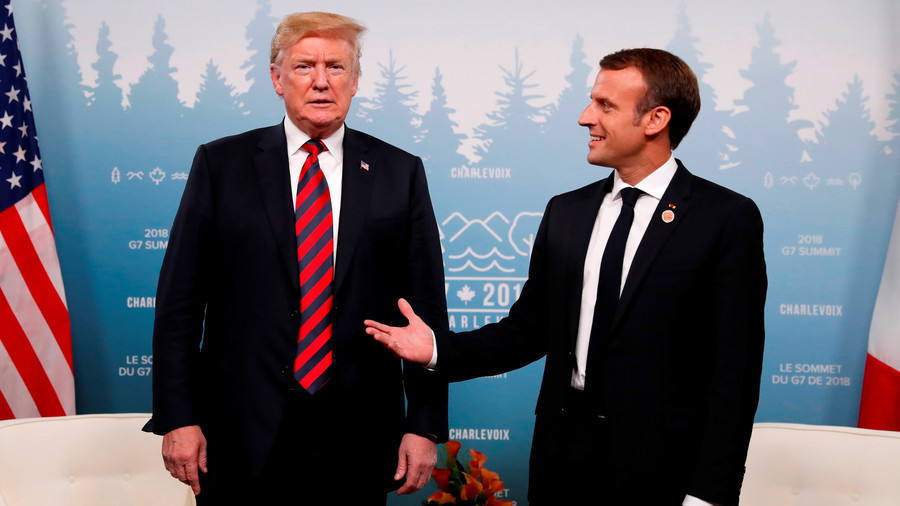Former German Ambassador: Is belligerent unilateralism turning the US into a “rogue state”?
(Baonghean.vn) - A veteran German diplomat has warned that President Donald Trump poses a serious threat to relations between Berlin and Washington. But some experts say the US leader's unilateralism has global implications beyond Berlin.
 |
| Anti-US protest in Berlin. Photo: Global Look Press |
Former German Ambassador to the US Wolfgang Ischinger has expressed concern that Donald Trump's destabilising policy moves - from withdrawing from the Iran nuclear deal to imposing tariffs on the European Union - could encourage anti-American sentiment in Germany, making it increasingly difficult for Berlin to protect its relationship with Washington.
In an interview with Reuters, Ischinger urged Germans not to abandon the transatlantic partnership with the United States, but acknowledged that Trump's alienating moves could become "dangerous" for US-German relations.
Trump vs. the world?
Professor Peter Schulze, an international relations expert at the University of Gottingen, commented that Germany is not the only country that feels challenged by the US President's isolating foreign policy initiatives.
“The Trump administration and Congress have essentially sought to decouple the United States from the eyes of the majority of sovereign nations in the world,” he said, adding that a “deep rift” had formed between Europe and Washington. However, he doubted that Trump’s alienating policies would lead to a “dangerous, hostile anti-Americanism” in Europe, instead predicting that Germany and other European countries would simply try to wait out a new administration in Washington—a strategy Schulze called “evasion.”
John Laughland, a British philosopher, historian and author, said the EU was shocked by Trump's decision to impose tariffs on the bloc. But the US president's previous decisions to withdraw from the Iran nuclear deal and recognize Jerusalem as the capital of Israel were also dangerous warnings for Europe.
“All these measures make European countries think – and I think they are right – that the new US administration wants to pursue a policy of power, a policy of asserting US interests unilaterally. And of course that puts Europe in a very weak position, because the EU is used to cooperating with the Americans. Without that cooperation, the European project itself will be in trouble.”
Laughland added that while Trump has sought to alienate European countries and Canada, his dealings with Saudi Arabia and Israel appear to be aimed at strengthening old alliances. Even Japan, another close US ally, has been largely spared Trump’s alienating behavior.
Unpredictable subject
 |
| Illustration: Getty |
Putting aside concerns about rising anti-Americanism, Trump's indifference has also had unintended consequences that are being felt internationally.
Laughland noted that Trump's decision to withdraw from the 2015 Iran deal and the Paris climate accord has made the US an unreliable partner in the eyes of European allies.
“Trump has made America an unpredictable actor in international relations. It is rare for an administration to tear up treaties and agreements signed by its predecessor,” he asserted. While other presidents are unpredictable “in their own way,” Trump has essentially “reinforced America’s reputation” as a rogue state, a country that does not play by the rules.
Most worrying, though, Laughland asserts, is that Trump’s alienating policies could pose a risk of conflict with Iran: “We know about that, the neoconservatives, the Pentagon and Trump agree.”
Schulze said Trump's unilateralism could have far-reaching consequences that will affect geopolitics for decades to come.
The US leader’s preference for traditional, armed allies could “accelerate the formation of a constellation of key actors – whether through cooperation or conflict,” Schulze noted. He added that while US-China competition is likely to determine “the emerging world order,” alienating European and other countries may not help Washington successfully maintain its hegemonic position.
Don't trust Trump completely
 |
| US President Donald Trump and French President Emmanuel Macron at the G7 summit in Canada on June 8. Photo: Reuters |
However bold Trump's attacks on Europe may be, it is important to remember that the US president was once a reality TV star, Laughland notes.
“Trump is a genius at getting people to talk about him. He’s a reality TV host, he won primaries by occasionally not participating in debates. He has a knack for making himself the center of attention. And he often does that by saying things he doesn’t mean, or things he later backs down on. We saw that after the Helsinki summit. So similarly, in his foreign policy, Trump can say things that seem shocking, and upset a lot of people because they’re not used to his language, but that’s not what he means. Or what he means is not necessarily what he says,” Laughland said.

